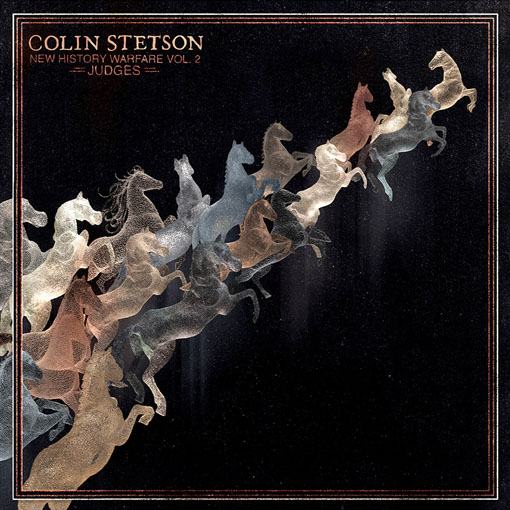13.

Colin Stetson – New History Warfare, Vol. II
I’m finally going to get to see him play live next year at some point! I’m really looking forward to it. This is such a mindblowing record. I think I got Volume Two first, which is why it’s the one I picked; it’s the one I fell in love with. But the whole series just works together. Again, when you put on a record and it’s like ‘This is made for me’ – it’s got all the things I like in it. The expressiveness of it particularly, the way he uses his instrument is really out there and quite aggressive. A friend of mine, his friend told him to go and see Colin Stetson, and he came back and reported on it, really quite angry he’d been put through that. But you know, that’s his opinion. [laughs]
A few of these records [in the list] were from when I was at university, and at Oxford jazz was just pleasant wallpaper for posh people, that’s the only kind of jazz I knew existed at that point. But then realising that, actually, jazz is more aggressive than the rock or punk or 80s synthwave things that I thought were the most aggressive music I liked. Even Miles Davis is really aggressive with tone the whole time, even playing a nice song, it’s still an affront to people. It’s like the saxophone in the Amon Düül record, it’s a bit ‘Can I get away with that?’ That’s what I like, because I feel like musical aggression is the best possible political act. The way my friend was so affronted by having been sent to see Colin Stetson, that’s good, it’s left an impression on him. This aggressive squeak and grunt and animal noise that comes out of Colin Stetson, it’s not letting you pretend for a moment that it’s just trying to please you.
My friend was talking about having seen him, and that after the show it’s like he’s having an asthma attack, he’s just physically destroyed by the process of playing that intensely. Etienne – who’s an accomplished sax player – is just like ‘No way, don’t ask me to try and do that’. It’s brutal work, what he does. That’s a part of it, like with Kieran and Steve, the reality of the sweaty work they’re doing together, and also I guess in Suicide, and Terry Riley, and the Conrad and Faust thing as well – that famous story about them playing it at the ICA and when it finished the guy playing bass looked down and there was a pool of blood at his feet, which he slowly realised had come from his thumb. The music really happened, people really suffered and were at the limit of their ability to make it. I guess that’s quite an important thing all the way through this list, but it particularly comes out through this record.


